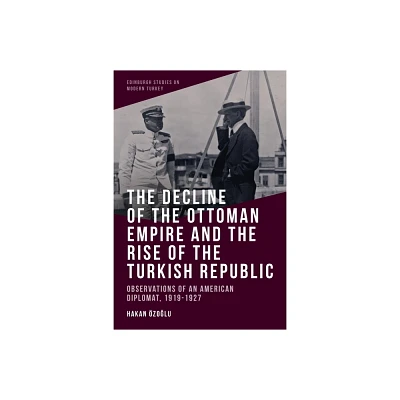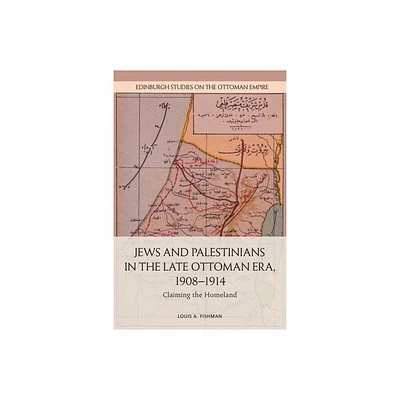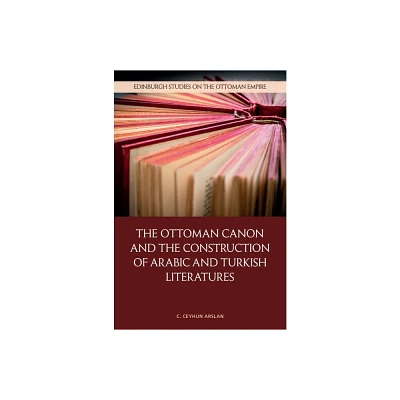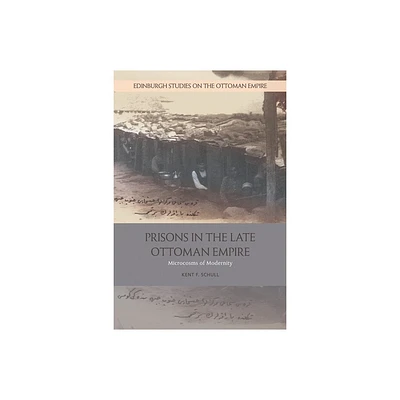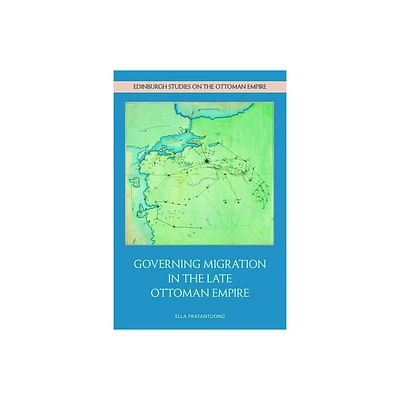Home
The Jews of the Ottoman Empire and the Turkish Republic
Loading Inventory...
Barnes and Noble
The Jews of the Ottoman Empire and the Turkish Republic
Current price: $89.00


Barnes and Noble
The Jews of the Ottoman Empire and the Turkish Republic
Current price: $89.00
Loading Inventory...
Size: OS
*Product Information may vary - to confirm product availability, pricing, and additional information please contact Barnes and Noble
Shaw's excellent treatise is a must for anyone researching roots in Turkey or the Ottoman Empire . . . well organized. . . . [and] impressively researched.
Dorot
Shaw points out many interesting facts of the symbiosis between Jews and Muslims as he traces the relationship of more than 600 years.
Choice
Especially recommended for college-level students of Jewish history and culture.
The Bookwatch
Over the course of the last 600 years, the existence of the Jews of western Europe was continually threatened. While many took refuge in the Eastern regions of Europe, particularly in Poland and Lithuania, many more found shelter in the dominions of the Ottoman empire and in the Middle East, where their reception was far more congenial.
This remarkable history, written by one of the world's foremost scholars of Turkish history, is the definitive account of Jewish life and history in this region. It is the story of the ideological and religious differences, and the hazardous but often successful cohabitation that characterized the life of the Jews of the Ottoman empire and, later, of Turkey.
Examining the economic, cultural, and religious contributions of the Ottoman Jewish community, Stanford J. Shaw, a master of Turkish history, here documents the role of Ottoman Jews in the early Zionist movement, in World War I, and in the Turkish War for Independence. His analysis of the structures of different Jewish communities, the relations between them, and the relations between Jews, Christians, and Muslims in this unique circumstance is engaging and incisive. As Shaw sifts through the centuries, it becomes apparent that the fortunes of the Ottoman Jews directly paralleled those of the Ottoman empire.
Shaw's extensive research in Ottoman, British, and French archives, as well as sources in Hebrew and Ladino, is supplemented by personal interviews with such major players as Haim Nahum Efendi, the last Grand Rabbi of the Ottoman empire, Rabbi David Asseo, Chief Rabbi of Turkey, and a number of prominent Turkish-Jewish scholars and businessmen.
Dorot
Shaw points out many interesting facts of the symbiosis between Jews and Muslims as he traces the relationship of more than 600 years.
Choice
Especially recommended for college-level students of Jewish history and culture.
The Bookwatch
Over the course of the last 600 years, the existence of the Jews of western Europe was continually threatened. While many took refuge in the Eastern regions of Europe, particularly in Poland and Lithuania, many more found shelter in the dominions of the Ottoman empire and in the Middle East, where their reception was far more congenial.
This remarkable history, written by one of the world's foremost scholars of Turkish history, is the definitive account of Jewish life and history in this region. It is the story of the ideological and religious differences, and the hazardous but often successful cohabitation that characterized the life of the Jews of the Ottoman empire and, later, of Turkey.
Examining the economic, cultural, and religious contributions of the Ottoman Jewish community, Stanford J. Shaw, a master of Turkish history, here documents the role of Ottoman Jews in the early Zionist movement, in World War I, and in the Turkish War for Independence. His analysis of the structures of different Jewish communities, the relations between them, and the relations between Jews, Christians, and Muslims in this unique circumstance is engaging and incisive. As Shaw sifts through the centuries, it becomes apparent that the fortunes of the Ottoman Jews directly paralleled those of the Ottoman empire.
Shaw's extensive research in Ottoman, British, and French archives, as well as sources in Hebrew and Ladino, is supplemented by personal interviews with such major players as Haim Nahum Efendi, the last Grand Rabbi of the Ottoman empire, Rabbi David Asseo, Chief Rabbi of Turkey, and a number of prominent Turkish-Jewish scholars and businessmen.

